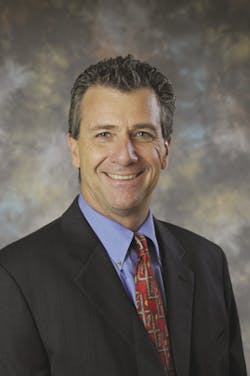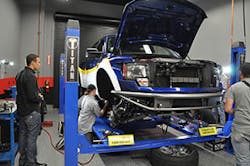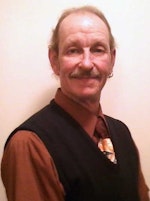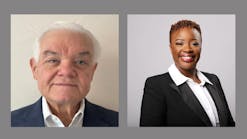SEMA Garage steers product development process for aftermarket manufacturers
An all-inclusive one-stop shop for engineering new aftermarket parts and providing relevant training courses has shifted to double shifts to better serve an increasing industry output of prototypes and product releases.
Hosted by the Specialty Equipment Market Association, the SEMA Garage is now operating from 6 a.m. to 11 p.m. A recent remodeling project doubled the available floor space while enhancing the facility’s technological capabilities.
“Its focus is to help manufacturers develop new products and bring them to market – and to do that in a highly engineered and specific sort of way,” says Mike Spagnola, SEMA’s vice president of OEM and product development programs. “The program is very successful.”
Adjacent to SEMA’s headquarters in Diamond Bar, Calif. with easy access to airports and hotels, four engineers are on staff to offer assistance throughout a product’s entire development cycle.
Compared to what a manufacturer might typically encounter during an in-house design and engineering endeavor, “We’ve taken the process from six months to six weeks,” Spagnola says. “Many of the services are free, past that it’s on a quote basis” to establish a reasonable fee.
A SEMA membership is required to access the facility, and business owners frequently sign-on to leverage the program’s benefits. “The cost to join SEMA is less than you would pay for these services elsewhere,” according to Spagnola.
“We have a full emissions lab” to ensure that your new product fully complies with the multitude of engine performance-, airflow- and fuel-based standards promulgated by the U.S. Environmental Protection Agency (EPA) and the California Air Resources Board (CARB).
As part of the multimillion-dollar remodeling project, in March the laboratory inaugurated diesel particulate matter analysis.
“The addition of particulate matter measuring equipment allows us to offer testing services to SEMA member companies who develop parts for diesel-powered vehicles,” says Compliance Center Manager Peter Treydte. “Diesel parts manufacturers can now utilize the SEMA Garage to guide them through the entire compliance process, from application to testing, and obtain CARB Executive Orders as easily and affordable as possible.”
The emissions lab’s “soak space” has been increased for pre- and post- testing, which “allows us to accommodate more vehicles, including larger diesel vehicles,” Treydte reports.
“If you want to develop a new air intake (or other regulated products) we can help you with the paperwork” and additional compliance details, including submitting appropriate documentation to air quality authorities, says Spagnola. A manufacturer need not be present at the actual facility to participate. “You send us your part and we would run the required test.”
Along with directly assisting with a product’s development process, assessing all manner of impending components from near and far is another element. “You don’t have to be here to do that sort of work,” he says. “We’ll find a vehicle to fit it on” for addressing viability issues.
“While we do have members flying in here all the time, there’s a lot of work that can be done offsite” at your own plant and then further developed at the Diamond Bar location. Onsite visitors can stay at two nearby hotels offering SEMA discounts; the Ontario, Calif. airport is a half-hour away and LAX is within commuting distance as well.
Model-specific functionality
In addition to the emissions lab is an enlarged bolt-on area for further hands-on analytical research.
“By doubling the size of the installation center we can now accommodate two vehicle lifts and larger Measuring Sessions,” says Treydte.
Conducted in collaboration with automakers, a Measuring Session involves scanning a vehicle to obtain precise computer assisted drawings containing the statistics, properties and details critical for inventing and applying new aftermarket parts with model-specific functionality – all accomplished prior to a vehicle becoming known to the motoring public.
The existing library is extensive and constantly being updated. “We start with CAD data,” Spagnola explains. “If we don’t have the CAD we can get our hands on a vehicle, scan it and reverse-engineer it. We can also take our measuring systems on the road” to review a particular model of interest as part of the facility’s Tech Transfer program.
For example, a Measuring Session for an upcoming edition of the Chevrolet Silverado recently attracted 190 participants eager to develop aftermarket add-ons reflective of the pickup’s design changes. “When that new Chevy truck hits the market in September there’ll be hundreds of parts ready for it,” he points out.
OEMs often loan vehicles to SEMA for anywhere from three weeks to four months, allowing members to physically try their products out on the targeted platform.
Applying a global perspective, Linda Spencer, SEMA’s senior director of international and government affairs, has been instrumental in procuring models that are not even destined for the American car parq. “Linda is able to obtain vehicles that are only available overseas,” says Spagnola. “We have it here at the garage. People can come in here and develop parts for vehicles outside of the United States.”
A large lineup of equipment drives the nuts and bolts of the product-creation process for your company’s development staff. “They’ll come down here for a week at a time at times” to fully perfect a new part. “We have every kind of tool that you can imagine,” he says.
The collection includes a portable FaroArm coordinate measuring machine, a 3D printer, digital race car scales, spring-rate checkers, a dynamometer and welders plus a full range of hand tools.
CADs can also be sent to your own facility, and “you can send it back to us and we’ll make a 3D-printed part. We can then put it on a car and you can actually start it” to get direct feedback on how the product will perform.
“Because it’s a nice, clean garage some manufacturers will come here to shoot installation videos.” An in-house photography studio stocked with camera gear, professional lighting, strobe kits, umbrellas, etc. focuses on highlighting your ability to visually connect with your customers through promotional materials.
“Upstairs we have a full training room,” Spagnola adds. “We can do training for retailers or manufacturers can do their own training” for anyone in need of instructional courses.
Although the facility is not necessarily geared towards one-off full vehicle builds, such activities do take place with some frequency to educate and entice high school and vocational center students. They work with donated parts and expert guidance to craft a unique custom while learning the tricks of the trade. The vehicle is then auctioned-off as a fundraiser for their institution.
In operation for about a half-dozen years, “the SEMA Garage is the ultimate production facility. The building was purpose-built to include state-of-the-art equipment specific to auto parts manufacturers,” Spagnola notes.
“We’ve further filled the SEMA Garage with tools and equipment so that members simply need to show up and do what they do best,” he emphasizes. “The garage was carefully designed to help any SEMA member develop new products for its buyers and speed them to market in a fraction of the time that they might otherwise take.”




